-
 Hội thảo “Thực trạng người Việt Nam hồi hương từ Vương quốc Anh giai đoạn 2014 - 2023”
Hội thảo “Thực trạng người Việt Nam hồi hương từ Vương quốc Anh giai đoạn 2014 - 2023”
-
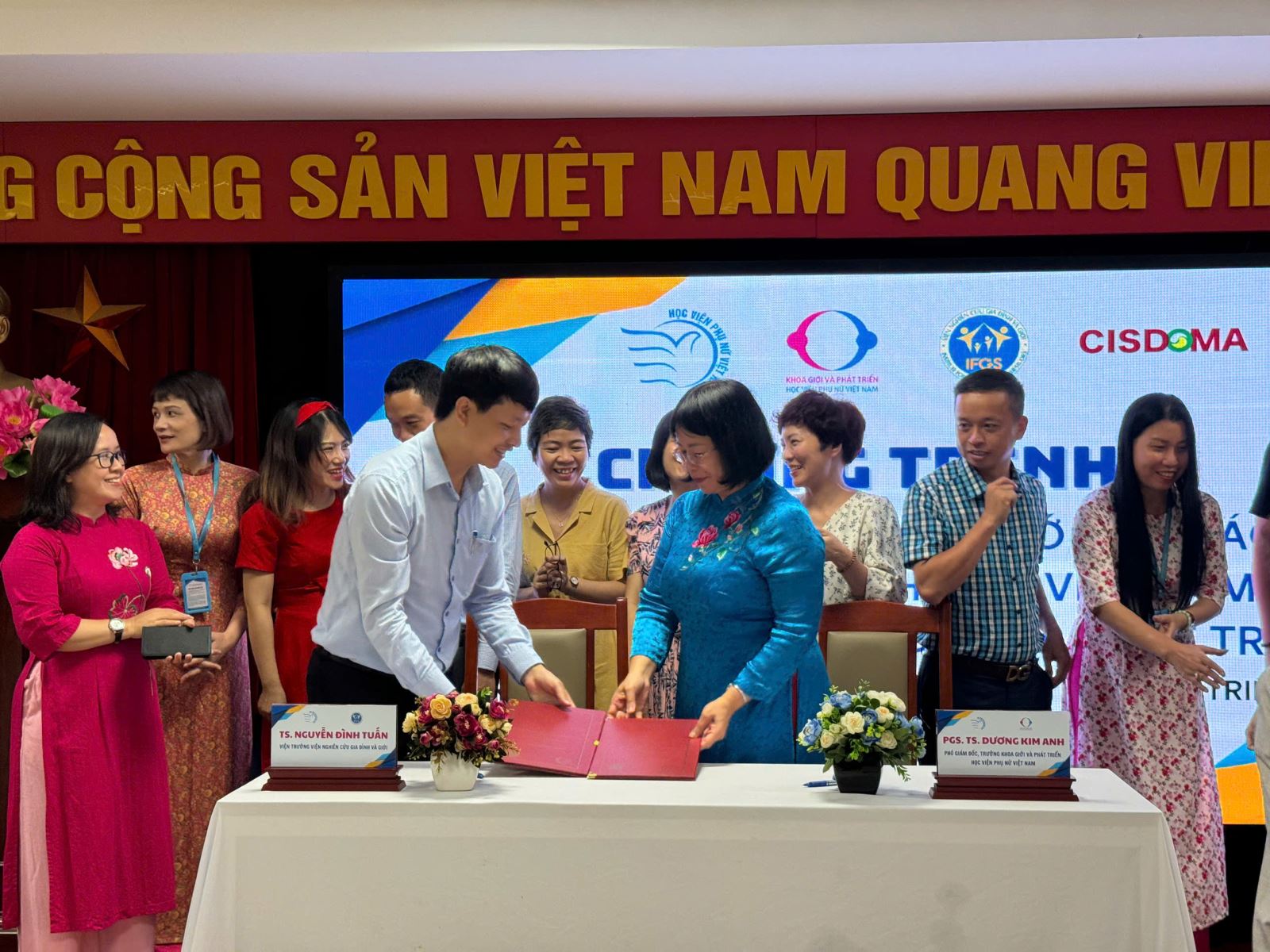 Lễ Ký kết biên bản ghi nhớ hợp tác giữa Học viện Phụ nữ Việt Nam với Viện Nghiên cứu Gia đình và Giới
Lễ Ký kết biên bản ghi nhớ hợp tác giữa Học viện Phụ nữ Việt Nam với Viện Nghiên cứu Gia đình và Giới
-
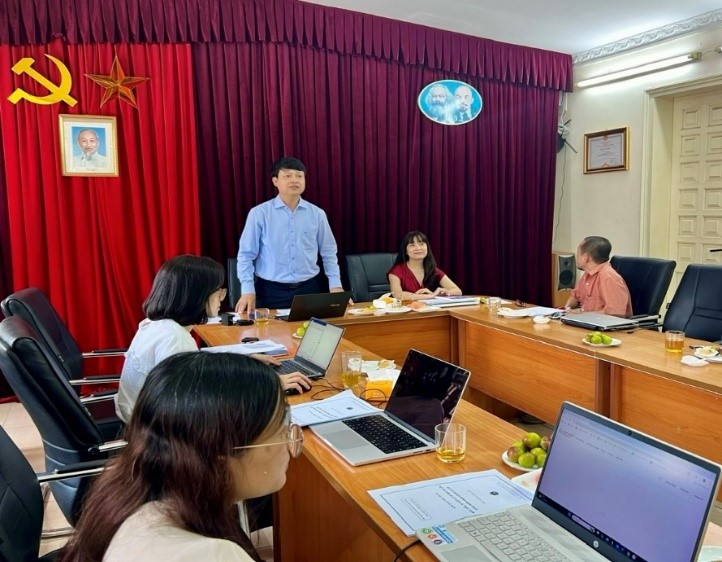 Hội thảo khoa học: "Bộ chỉ số gia đình hạnh phúc: Một số vấn đề lý luận và thực tiễn"
Hội thảo khoa học: "Bộ chỉ số gia đình hạnh phúc: Một số vấn đề lý luận và thực tiễn"
-
 Tọa đàm khoa học "Vận dụng lý thuyết trong nghiên cứu khoa học xã hội"
Tọa đàm khoa học "Vận dụng lý thuyết trong nghiên cứu khoa học xã hội"
-
 Hội nghị Đối thoại giữa Chi ủy, Lãnh đạo viện với đảng viên, viên chức và người lao động Viện nghiên cứu Gia đình và Giới 6 tháng đầu năm 2024
Hội nghị Đối thoại giữa Chi ủy, Lãnh đạo viện với đảng viên, viên chức và người lao động Viện nghiên cứu Gia đình và Giới 6 tháng đầu năm 2024
-
 Chi bộ Viện nghiên cứu Gia đình và Giới tổ chức sinh hoạt chuyên đề: Đoàn kết thống nhất trong Đảng theo tư tưởng Hồ Chí Minh
Chi bộ Viện nghiên cứu Gia đình và Giới tổ chức sinh hoạt chuyên đề: Đoàn kết thống nhất trong Đảng theo tư tưởng Hồ Chí Minh
-
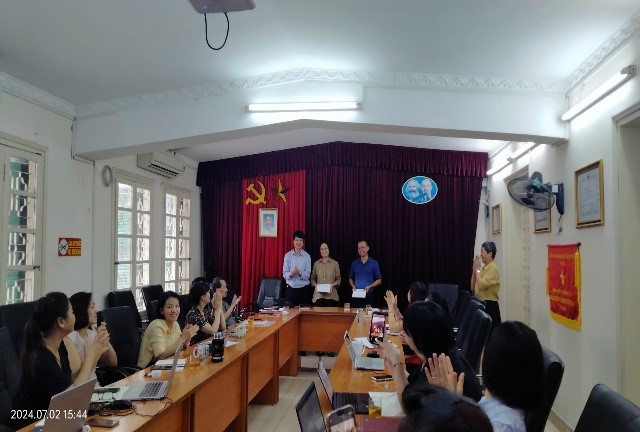 Cuộc thi “Nét đẹp và giá trị gia đình Việt Nam” hưởng ứng Ngày Gia đình Việt Nam 2024
Cuộc thi “Nét đẹp và giá trị gia đình Việt Nam” hưởng ứng Ngày Gia đình Việt Nam 2024
-
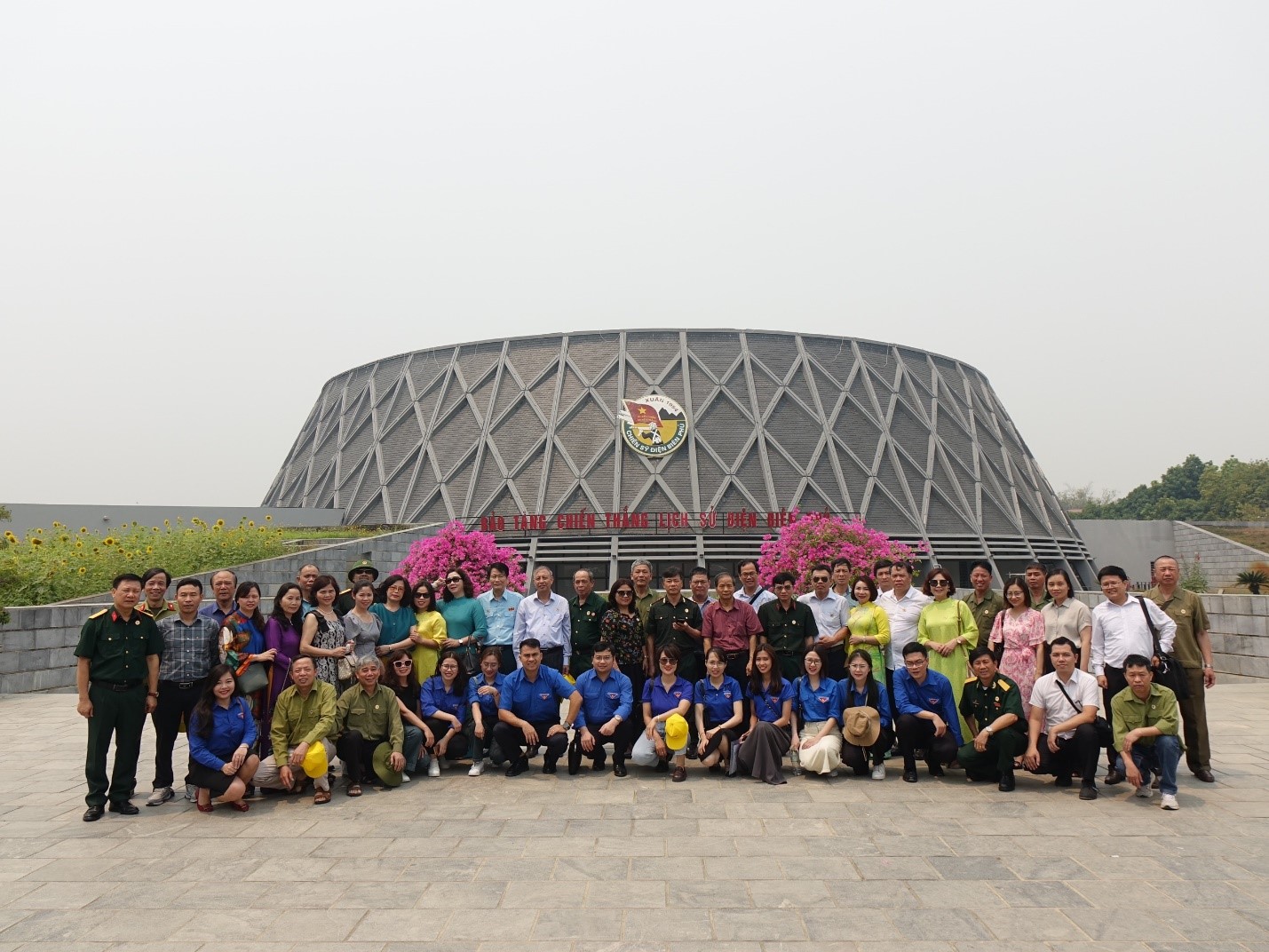 Hội Cựu chiến binh, Đoàn Thanh niên Viện Hàn lâm Khoa học xã hội Việt Nam đi thăm lại chiến trường xưa Điện Biên Phủ
Hội Cựu chiến binh, Đoàn Thanh niên Viện Hàn lâm Khoa học xã hội Việt Nam đi thăm lại chiến trường xưa Điện Biên Phủ
- Tổng mục lục Tạp chí 2023
-
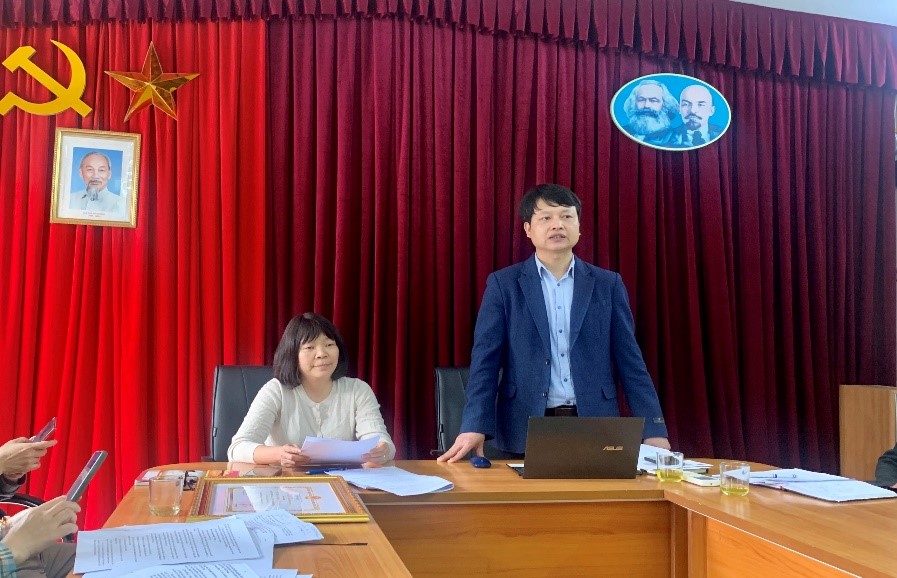 Viện nghiên cứu Gia đình và Giới phát động phong trào thi đua và ký Giao ước thi đua năm 2024
Viện nghiên cứu Gia đình và Giới phát động phong trào thi đua và ký Giao ước thi đua năm 2024
371
4752571
Conference “Promoting the elderly’s resources in socio – economic development in an ageing society”
25/12/2020| On December 14, 2020, the Institute for Family and Gender Studies (IFGS) organized an international conference on "Promoting the elderly’s resources in socio-economic development in an aging society" under the framework of collaboration between the Vietnam Academy of Social Sciences (VASS) and the Japan International Cooperation Agency (JICA). The conference aimed to share recent research findings of the IFGS on the role of the elder in socio-economic development particularly about the demand for labor resources, employment, and the situation of labor and employment of the elderly and proposing policy proposals on related issues in the coming time. |
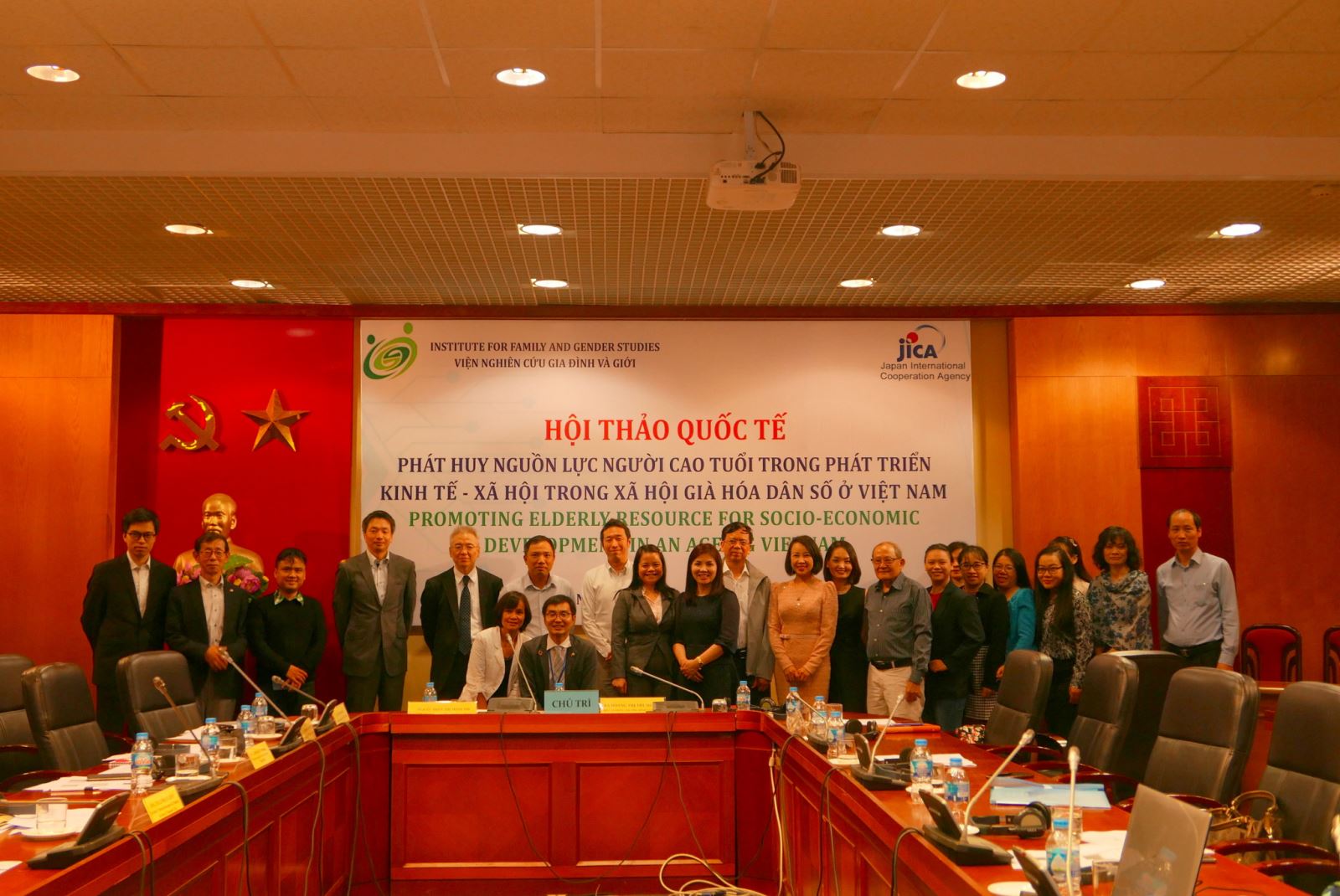
On the Japanese side, there was the participation of Mr. Miko Hayashi, First Secretary of the Embassy of Japan in Vietnam; Mr. Murooka Naomichi, Deputy Chief Representative of JICA office in Vietnam; Mr. Hiroaki Yashiro, Senior Investment Promotion Advisor - Ministry of Planning and Investment; Mr. Tsujimoto Ryo, Deloitte Vietnam Business & Finance Advisory Company Ltd; Mr. Ishiguro Yohei, project formulation advisor, JICA Vietnam; and Professor Tajika Eiji, an expert from JICA Vietnam (via online).
The conference started with the opening remarks by Assoc. Prof. Tran Thi Minh Thi, who outlined the current situation of the elderly in Vietnam and the purposes of the project. Over the past three decades, Vietnam's population has changed in both quantity and structure. The number of older persons aged 60 and over increased from 7.1% in 1989 to 10.2% in 2014, to 11.4% in 2017 and 13.5% in 2018, showing that Vietnam started the aging population. Currently, the majority of the elderly live in families in local communities. The number of older persons living in residential care unit is not large. Therefore, it is very important to learn the role of the elderly to adapt to changes in population and family structure and consider them as one of the resources in socio-economic development, not merely a dependent population that needs care and help. In that context, the Institute for Family and Gender Studies conducted several studies on this topic, including 1. Promoting the elderly’s resources in socio-economic development to adapt to the aging population context of Vietnam, supported by VASS and JICA; 2. Gender difference in participation in economic activities of the elderly, supported by MOLISA; and 3. The role of the elderly in aging Vietnamese society, supported by VASS. All three studies have been completed in 2020 and during this conference, the research team shared key findings on the economic involvement of the elderly and aims to find out the social positivity, autonomy, and needs of the elderly and the theoretical suggestions for the research as well as appropriate policy proposals based on lessons learned from Japan.
Mr. Murooka Naomichi, Deputy Chief Representative of JICA Office in Vietnam also welcomed the cooperation between JICA and VASS in the research project on the topic
Mrs. Hoang Thi Thu Huyen, President of Trade Union, Ministry of Labor, Invalids and Social Affairs presented the report "Social issues in the Socio-Economic Development Strategy 2020-2030". She commented that Vietnam is in its bonus population but the ageing population process is becoming a great concern as well. Her presentation outlined challenges for workers, social security in the period 2010 - 2020, achievements in managing sustainable social development in the period 2011-2020 and outlined some suggestions and solutions for sustainable social development in the 2021 - 2030 period, such as developing policies to support and encourage enterprises to employ older workers, developing employment programs for the elderly, improving social security, reducing poverty and implementing comprehensive solutions.
A/P Tran Thi Minh Thi, Director of the Institute for Family and Gender Studies, presented the report "Economic participation of the elderly and the current policy issues". The report presented the results of the study on "The role of the elderly in aging Vietnamese society" conducted in Ninh Binh province by 2020 and the research on "Gender differences in economic activities of the elderly” (case study in Da Nang). The report indicated different dimensions of economic activities of the elderly such as income sources, the proportion of working older persons, level of their participation in paid and unpaid work, working purposes by gender, by location of residence; the current employment nature of the elderly and their current main jobs. The research showed that the majority of older people continue to work after retirement, the proportion of older people working in paid jobs is much lower than the unpaid and the traditional gender-based division of labor is still maintained in today's families. Since then, she also made some recommendations including promoting the labor participation of the elderly, building policies to promote the role of the elderly to adapt to the aging society.
Dr. Trinh Thai Quang, a research team member from the Institute for Family and Gender Studies presented the report on “Job demands and employment of the elderly in Vietnam (a case study in Da Nang). The report showed the main findings of the research on older persons participating in the labor market, job characteristics, type of job, working purposes, employment needs of older persons, their desired jobs, and advantages and disadvantages of the elderly in finding jobs.

Mr. Hiroaki Yashiro made a comparison between the social security policy between Vietnam and Japan. In Japan, there are different kinds of insurance including compensation insurance, health care insurance, national pension insurance that requires participation from 20 to 64 years old and are all subject to 30% copayment. People over 75 years old should have health care insurance. The representatives from Japan shared about some typical Japanese policies for the elderly, such as employment insurance to pay for the unemployed, people who quit their jobs to take care of children, the elderly, which apply for all employees who work over 20 hours/week; health insurance covers illnesses outside of work, maternity payments, 90% of nursing expenses for people over 75 years old; Retirement insurance: pay for the elderly, the injured, and the dead, apply to normal employees working for companies, part-time workers with working time more than 3/4 of the time of a normal employee.
Professor Tajika Eiji, the expert from JICA Vietnam, raised some questions to the conference that how the recruitment of older people in Vietnam is organized? What Vietnam has done so far to develop more jobs for older people? And some other questions related to the pension system and the government roles and enterprises in supporting older workers with working opportunities.
Mr. Nguyen Tam Giang, a representative from World Bank Vietnam mentioned other group of older people that would also need more attention from the government as well as the community, they are ethnic elderly, disabled elderly but able to work. He mentioned “the caring economy” where the elderly are a group that contributes to the care economy. Among the elderly, healthy people take care of those who are not healthy.
Japanese delegates commented that to cope with the aging population, Japan also adjusted their pension and retirement age; businesses must make adjustments to help the elderly; Japan also has many job placement centers for the elderly. The Japanese representative also hoped that these could be lessons learned for Viet Nam. Other delegates from Vietnam including those from Vietnam Women’s Association, HelpAge Vietnam raised their concerns about gender inequality among the older people population partly due to care duties. There need to be specific policies suitable for this population in regards to their working at a later age. They also indicated that it would be great if the Institute, MOLISA, and HelpAge could work together to conduct deeper studies on community-based initiatives for sustainable economic solutions.
Speaking at the conference, Mr. Nguyen Thanh Ha - Head of International Cooperation Department, Vietnam Academy of Social Sciences, thanked JICA for their 10-year companion with VASS, and VASS and JICA will work together to develop plans for the next 10 years.
At the end of the conference, A/P Tran Thi Minh Thi thanked the enthusiastic participation and fruitful exchange of opinions of representatives from agencies and organizations in Vietnam and Japan, appreciated the effective support from JICA Vietnam, MOLISA, Departments of VASS. The Director also expressed special thanks to the participation of Professor Tajika Eiji, the expert of JICA Vietnam who gave important comments and contribute to the success of the conference.
Nguyen Thanh Mai and Trinh Thai Quang
Các tin cũ hơn.................................................

